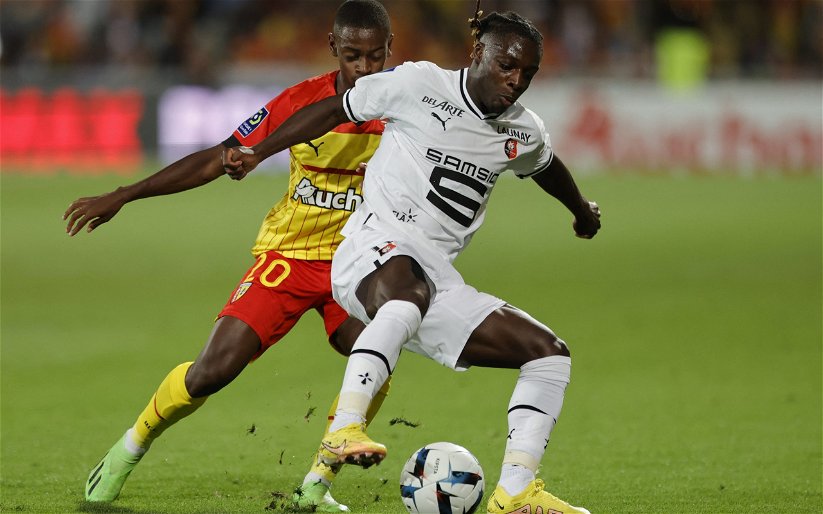![roy-hodgson-manager-liverpool-2010[1]](https://cdn.live4liverpool.com/wp-content/uploads/2010/10/roy-hodgson-manager-liverpool-20101-223x300.jpg) It wasn’t until this week’s revelation that Roy Hodgson received compensation in the region of £7.3 million for being sacked by Liverpool’s new owners, Fenway Sports Group, that I acknowledged the level of expense Premier League chairmen have recently been prepared to outlay in order to remove their club’s manager. The contemporary trend of managerial pay-offs has been offset with a few cases where managers have maintained their terms of employment for longer than warranted because the price of relieving them of their position has been too costly. The benefits, other than those reaped by the deposed mangers, of this culture are not immediately obvious and despite a lack of public clarity in terms of football clubs finances, it is clear that managerial reparations have cost several fans the opportunity to enjoy new signings.
It wasn’t until this week’s revelation that Roy Hodgson received compensation in the region of £7.3 million for being sacked by Liverpool’s new owners, Fenway Sports Group, that I acknowledged the level of expense Premier League chairmen have recently been prepared to outlay in order to remove their club’s manager. The contemporary trend of managerial pay-offs has been offset with a few cases where managers have maintained their terms of employment for longer than warranted because the price of relieving them of their position has been too costly. The benefits, other than those reaped by the deposed mangers, of this culture are not immediately obvious and despite a lack of public clarity in terms of football clubs finances, it is clear that managerial reparations have cost several fans the opportunity to enjoy new signings.
The financial damage caused by Hodgson’s departure implies that he earned £45,833 on each of his 192 days at Anfield and the former Fulham boss inflicted further pain on his old club by guiding West Brom to a 2-1 victory over Liverpool this weekend. However, Hodgson’s recently burgeoning bank account doesn’t represent the largest sum received by an ousted Premier League manager in the last three years. Chelsea parted with £12.6 million in order to jettison Luiz Felipe Scolari and his assistants in 2009, which was sandwiched in between the £3 million Sam Allardyce was awarded for leaving Newcastle in 2008 and Mark Hughes earned the same amount for being discarded by Manchester City.
In Fact, ‘Big Sam’ negotiated another £3 million pay-off when Blackburn announced his sacking last December and his aptitude for inducing widespread initial confidence and then forcing the need for an abrupt change worth millions highlights the inescapable incompetence affecting several Premier League chairmen. The evidence suggests some of the most successful managers of the current century have built their reputations on short stints at clubs and countries and the rewards they have delivered have far outweighed any subsequent negative influence.
Jose Mourinho is generally considered to be the world’s most skilled at this type of managing and has never preserved his responsibilities at any club he has managed for longer than three years. Mourinho’s longest spell as manager was at Stamford Bridge where he guided Chelsea to 2 Premier Leagues, 2 League Cups and an FA Cup having previously led Porto to 2 Primeira Ligas, a UEFA Cup and a Champions League trophy during his two years at the Estadio do Dragao. Internazionale were the next club side to benefit from the Portugese’s charmed touch and achieved an unprecedented Italian Treble last season. Guus Hiddink embodies Mourinho’s international counterpart, having transformed the footballing foundations in Holland, South Korea, Australia and Russia with a four-month term at Chelsea yielding an FA Cup in 2009.
In my view, no manager should merit a contract any longer than two years for an international team because the nature of international competition dictates two-year schedules. Steve McClaren’s £2.5 million remuneration for failing to qualify England for Euro 2008 should have encouraged the FA to reassess their approach to managerial contracts but were unable to relieve Fabio Capello of his duties after last summer’s World Cup due to a clause inserted in his terms before the tournament invoking an immediate £6 million recompense for dismissal. If a manager’s performance is evaluated after every tournament then surely they should only be offered terms for the duration of the qualification period and the resulting competition?
Club football provides a different framework and work-load but no chairman should feel compelled to place extortionate ‘confidence’ in a manager by offering them contracts lasting three, four or five years. It is always difficult to equate traditional employment conventions to those exercised in football but managers of any team in any league shouldn’t require more than two or three years to achieve the targets negotiated at the time of their appointment. The money Blackburn, Chelsea and Newcastle could have saved might have been used to reinvest in the playing staff – something all fans would favour. The Premier League’s wealth continues to grow in parallel to its chairmen’s incompetence but future managerial axe-wielders would do well to consider the true cost of impulsive confidence.
The article was written by Josh Sheridan for FootballFancast.com. Make sure to check out the latest news, blogs and podcasts at FFC – ed.
Follow us on twitter @live4Liverpool or like us on Facebook
Live4Liverpool is recruiting columnists. For further info contact the site editor at live4liverpool@snack-media.com
[bet_365 type=’generic’ size=’468′ af_code=’365_061434′]



Roy was not a manager for Liverpool. He did everything wrong: buying wrong players, bad rapport with players,wrong tactics… He did everything bad and put us in a critical position. Fortunately King Kenny was there. He is a manager who loves the club not Roy.
Roy is just a low level manager, he’s good at working with poorer standard premier league players and getting the best out of them which he showed at fulham and is showing with west brom,
He got found out at Liverpool because he can’t teach anything to world class players. Plus it was hard to do better than Benitez who was a tactical genius. (well most of the time he was)
I could of saved Liverpool £7m in the summer by saying he was poor and not good enough!
Absolutely ridiculous – even Fulham would only give him a 12 month rolling contract, and then Liverpool come along and offer an unproven, “interim manager” a 3 year contract!?